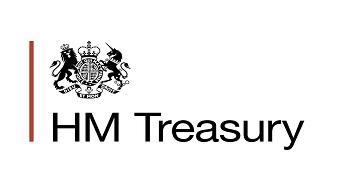Given that there are many sources from which to discover “what the Budget means for you”, this note will focus on the implications for business (rather than individuals) and, in particular, for those involved in the engineering sector.
There was little of direct interest to MTA, EIA and AM-UK members in this week’s Budget Statement but this is not a surprise given our major win of getting Full Capital Expensing (FCE) made permanent in last Autumn’s statement. Incidentally, although he did not say so directly in the speech, the detailed version of the budget statement includes a re-announcement of this under the heading of “the government’s ambitious growth agenda”.
However, there is one significant flaw in the FCE scheme in that it does not cover leased or rented assets. The Chancellor announced draft legislation to extend full expensing to assets that are bought for the purpose of leasing or hiring to others but note that this is only a “draft”, has no timescale and that he added that this was with a view to including these assets in the FCE scheme “when it was affordable”. A move in the right direction but a very tentative one.
There were some small measures which members might find helpful although, as always, the devil is in the detail, at least some of which is still to be announced. This list includes (and some of this was buried deep in the detail and only came to light in a “highlights” notice from the Department for Business & Trade):
- A £360 million package to support innovative R&D and manufacturing projects across the life sciences, automotive and aerospace sectors. It is not clear if this is new money or just a re-announcement of part of the package provided last Autumn.
- SMEs will be supported to invest and grow through a £200 million extension of the Growth Guarantee Fund. This is an extension and renaming of the Recovery Loan Scheme but given that it offers loans of up to £2 million (only £1 million in Northern Ireland), if they are close to that limit, that only provides funds for 100 companies in the period up to March 2026.
- The Green Industries Growth Accelerator will be allocated an extra £120 million to build supply chains for offshore wind and carbon capture and storage. Potentially, this offers engineering contracts which would feed through into our industries.
- A Carbon Border Adjustment Mechanism will be introduced from 1 January 2027 (nearly three years away and, therefore, liable to change) and will apply to relevant goods imported in the aluminium, cement, ceramics, fertiliser, glass, hydrogen and iron & steel sectors. The details will be subject to public consultation later in 2024 but it could help with materials costs.
- The Chancellor confirmed plans for the £50 million Apprenticeship Growth Sector pilot, which will boost funding for eligible providers delivering 13 high-value apprenticeship standards in advanced manufacturing, green and life sciences sectors.
- The government is to purchase the Wylfa and Oldbury-on-Severn nuclear sites – presumably to use them for new installations of some sort – and is inviting six companies to submit initial tender responses for the selection of Small Nuclear Reactors, thereby moving this scheme on a little (although we look to be still a number of years from any engineering input being required).
- The government is also announcing a new £7.4 million upskilling fund pilot that will help SMEs develop AI skills of the future, unlocking the new opportunities that AI brings. This will complement the SME Digital Adoption Taskforce, which the government will shortly be launching.
Finally, freezing the duty on fuel (petrol and diesel) will be regarded by most as a good thing but it has implications for the UK’s green agenda. This is the 14th year in which fuel duty has not been increased (previously it went up each year, usually in line with inflation) to which we need to add the “temporary” cut of 5p introduced by the then Chancellor (Rishi Sunak) in 2022. The BBC noted that “Working out the effect that has had on emissions is complicated, but after last year’s budget the online climate journal, Carbon Brief, gave it a go. It estimated road transport emissions by 2023 could be as much as 24% higher (21MtCO2) than if fuel duty had risen in line with inflation. It found the UK’s overall CO2 emissions were likely up to 7% higher than they would have been without fuel duty cuts.” You can access many of the budget documents via the HM Treasury website at https://www.gov.uk/government/publications/spring-budget-2024. The CBI’s immediate response is at https://www.cbi.org.uk/media-centre/articles/cbi-responds-to-spring-budget-2024. Jack Semple at EAMA (of which MTA is a member), has also produced a summary of the budget with a request for comments and we have attached this document for those wo wish to read it

